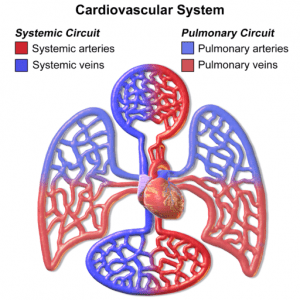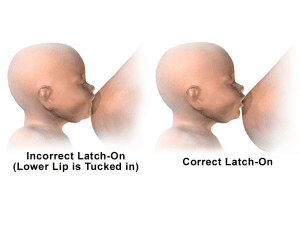Over recent years, multiple organizations have been advocating for mothers to breastfeed. Doctors recommend that moms practice breastfeeding exclusively for six months. They also advise continuing such practice even as the child is starting on solid food, possibly breastfeeding until the child is two years old or older.

According to the Centers for Disease Control and Prevention (CDC), breastfeeding rate increased in the past years. In fact, reports show that we have reached and even surpassed the target percentage of infants who were breastfed. However, there’s still much we can do in getting mothers to join in and continue the practice.
So why is breastfeeding on the rise? Let’s take a look at why many mothers do it today and other questions commonly asked.
What Is Breastfeeding?
A healthy diet is essential for everybody but especially crucial for newborn babies. Malnutrition is responsible for roughly a third of deaths in infants under the age of five.


Breastfeeding can help bring these statistics down. It means having your baby drink your breastmilk. You can directly nurse them or use a breast pump to store milk for later.
After giving birth, you’ll first produce colostrum. It is the yellow-colored milk that breasts first produce. Such contains high levels of vitamin A referred to as beta-carotene. The colostrum is easy for the baby to digest as it is high in protein but low in fat. Colostrum also contains essential antibodies to fight against viruses and bacteria.
After a few days, breasts will start to produce breastmilk. Moms will notice a gradual change from the yellow colostrum to the whiter breastmilk. The breastmilk has higher levels of calories and would be thinner in consistency. Such is necessary for keeping the newborn full and maintaining a healthy weight.
Your diet can affect the nutrients in the breastmilk you produce. The healthier you eat, the healthier the milk will be.
What Long-Term Benefits Are There?
Nutrition isn’t the only benefit of breastfeeding. There are long-term benefits, as well. In a study commissioned by the World Health Organization (WHO), researchers looked into the effects of breastfeeding on several factors: level of total cholesterol, blood pressure, diabetes, obesity, and intelligence.
In this study, researchers discovered that breastfeeding led to a small decrease in blood pressure. There was, however, a significant effect on reducing the risk of diabetes and obesity. Through intelligence tests, they also found out that children scored an additional average of 3.5 points when they were continuously breastfed as infants.


And it isn’t just your baby who’ll reap benefits. Studies also show that mothers who partake in breastfeeding will experience long-term gains. Compared to those who never breastfed, moms who practiced showed improved cardiovascular health in later years. The practice is also correlated to lower rates of ovarian and breast cancer.
There’s also an emotional connection that you can gain when you breastfeed your child. Many mothers feel closer to their children when they nurse.
How Much Does My Baby Need?
One of the reasons why moms stop breastfeeding is the belief their child is not getting enough nutrition. This often stems from them not knowing how much milk their babies need.
Many factors affect the number of times you should feed your child in a day. One of these is the size of their stomach. At birth, their stomach is typically the size of a cherry. Because of this, you’ll have to breastfeed them constantly within the first 24 hours.
It’s difficult to give a specific number or amount of how much milk your baby should be drinking. Thankfully, there are indicators to find out if your child is well-fed.
If your baby is getting enough milk, they will:


- Reach their target weight as confirmed by your doctor
- Feed around 8-12 times a day
- Be alert and responsive
- Have stools that change from a dark color to yellow within the first week of being born
- Have a healthy skin color
- Go through at least six wet diapers in 24 hours
Some signs that your baby is hungry are as follows:
- Your baby may begin crying
- They may repeatedly suck on their fingers or hands, lick their lips or smack their lips
- Your baby turns their head and opens their mouth as if searching for a source of milk
When it comes to breastfeeding, you’ll have to learn to be in tune with your baby’s needs.
What Problems Might I Experience?
If you plan on breastfeeding your child, there are problems you may run into. The process may not always come naturally to all mothers and their babies. Such will take some adjustment.
One issue is your infant clamping down on your nipple while suckling. It is common and will take some getting used to. However, if you notice blood or cracked skin, this is a bigger problem. Your infant may not be latching on correctly. One way to fix this is by checking if your positioning is correct. Nipple butter, creams, ointments, and cooling pads can help heal your skin.


Ducts can also become plugged, causing the area to become tender. This may feel like a small ball trapped within the tissue. You can solve the plugged ducts by using a warm compress or by massaging the area. This problem may occur if you are not nursing often enough.
Another problem is the pain you may experience once you start producing milk. This pain may feel like a dull throbbing in the breast area or a tight feeling. It typically subsides a few minutes after your body starts to create milk. Using nipple cream can soothe sore and cracked nipples caused by frequent feedings during breastfeeding.
Why Not Just Go For Formula?
A common debate in the world of motherhood and infant care is between breastfeeding and formula. Again, there are several factors and issues moms should consider during these discussions.
From a scientific point of view, breastmilk provides more nutrition for infants. It contains antibodies that fight against illnesses. Formula milk does not have the same benefits.
Social status also affects the decision to breastfeed. In low-income countries, it may be more beneficial for mothers to breastfeed their children. This is because some people may not have access to a clean water source.


In Summary
Researches have proven over and over the benefits of breastfeeding. The rise in the popularity of the practice is a testament to mothers realizing such gains. With more breastfeeding information circulating, more mothers are participating in the practice.
So why not give it a try? You’ll be able to provide greater care to your child and also yourself.
Breastfeeding FAQs
What is breastfeeding?
Breastfeeding is the process of nursing of babies with milk from a woman’s breast.
Is breastfeeding better than formula?
Yes. That is because it provides natural antibodies that help your baby resist infections and illnesses
How long should you breastfeed your child?
For most women, the average length of time for breastfeeding is up to 17 weeks.
What foods to avoid while breastfeeding?
When breastfeeding, you should avoid consuming alcohol, Coffee, Tea, and Chocolate. Avoid too much Garlic, Parsley, Peppermint and Sage, and “Gassy” Foods.
Why can’t I eat chocolate while breastfeeding?
If mothers are eating more than 750 mg of chocolate a day, it may cause babies to get fussy and irritable.
Does sugar affect breast milk?
Definitely, not. Breastmilk is not affected by the amount of sugar that mom eats.
How long should I breastfeed my baby each time?
To understand what breastfeeding is, one should note the duration of most breastfeeding sessions takes 20 to 45 minutes. However, it can take longer during the newborn because newborn babies are often sleepy.
Do you gain weight when you stop breastfeeding?
Yes. But don’t worry. It is normal to gain weight when you stop breastfeeding.
What is the right age of a child to stop breastfeeding?
All babies must be breastfed for six months before you introduced them to appropriate soft and solid foods. However, continuing to breastfeed for two years or beyond is still a must.
How do I know my baby is full when breastfeeding?
You will know when your child if full when his or her hands are open and relaxed. Most of the time, your baby may fall asleep and seems peaceful.
Can you breastfeed forever?
Kids outgrow breastfeeding on their own. All children stop breastfeeding eventually, while some of them finish earlier than others.
What happens to my body when I stop breastfeeding?
If you want to stop breastfeeding, consider doing it gradually. That is because stopping breastfeeding suddenly could put you at risk of blocked ducts or mastitis and engorgement.
Do hormones change when you stop breastfeeding?
Yes. Oxytocin decreases, so it will make you may feel sad, irritable, or cranky.
Last Updated on April 28, 2023 by Bernadine Racoma
DISCLAIMER (IMPORTANT): This information (including all text, images, audio, or other formats on FamilyHype.com) is not intended to be a substitute for informed professional advice, diagnosis, endorsement or treatment. You should not take any action or avoid taking action without consulting a qualified professional. Always seek the advice of your physician or other qualified health provider with any questions about medical conditions. Do not disregard professional medical advice or delay seeking advice or treatment because of something you have read here a FamilyHype.com.